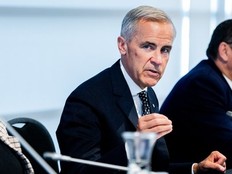CHARLEBOIS: How politics is inflating the price of your coffee
If Canada and the U.S. can’t strike a deal by July 21, your morning coffee should not remain a casualty of trade politics

Article content
Ground coffee prices in Canada have surged by 19% since the start of 2025, according to Statistics Canada — making it one of the fastest-rising food items on grocery store shelves this year. Many consumers may attribute the spike to global market volatility, especially after coffee futures soared to a record high of over US$4.40 per pound in February. But that explanation no longer holds as futures have since dropped by more than 30%, yet retail prices remain stubbornly high. So, what’s driving this divergence?
The answer lies, in part, in trade policy.
Since March 3, Canadian importers have been paying an additional 25% tariff on imported coffee. This counter-tariff, introduced as part of Ottawa’s retaliatory measures during a trade dispute, directly affects a product Canada doesn’t even grow. Unlike dairy or poultry, coffee has no domestic farming sector to protect. These tariffs are not shielding Canadian farmers—they are punishing Canadian consumers and businesses.
To grasp the scale of this impact, consider the size of the industry. According to Introspective Market Research, retail coffee sales in Canada total over $27 billion annually and are projected to grow steadily over the next decade. Meanwhile, coffee shops and quick-service restaurants (QSRs) — from Tim Hortons to independent cafes—generate an additional $6.4 billion per year. Tim Hortons alone sells over 5 million cups of coffee per day. This is not a fringe sector; it’s a critical part of both our economy and our culture.
Ironically, the United States — our supposed trade adversary in this case — doesn’t grow coffee either. Yet both countries are now entangled in a tariff tug-of-war that serves no practical purpose. The same logic applies to tea, which is also subject to retaliatory measures.
These tariffs were introduced under the Trudeau government in a broader geopolitical strategy that often felt more performative than pragmatic. Ottawa’s elbows-up approach to trade — seemingly crafted on a whiteboard without regard for economic fallout — may have resonated politically, but it ignored basic economic principles. Consumers were never part of the equation.
Prime Minister Mark Carney appears to be taking a more measured approach. Tariffs on U.S. alcohol and citrus products remain, but those can be sourced from other markets with relatively little disruption. Coffee and tea, however, are another matter entirely. There are no alternative domestic sources. The cost of these tariffs is being passed directly to roasters, grocers, restaurants — and ultimately, to the consumer.
Moreover, the volatility of American trade policy under Donald Trump continues to inject uncertainty into food markets. Tariffs come and go with the political winds, forcing companies to engage in “buffer pricing” — a form of risk management where businesses price in uncertainty to protect their margins. It’s effectively a tax on unpredictability, and it’s now embedded in the price Canadians pay at the till.
And while consumers might not feel the same pinch at their local cafe — where coffee is a smaller fraction of the total cost of a cup — the grocery aisle tells a different story. That’s where the full weight of these policies lands.
Whether a new trade agreement can be reached by the July 21 deadline remains uncertain. But what should be obvious is this: both Canada and the U.S. should leave the agri-food sector — especially essential imports like coffee and tea — out of their geopolitical skirmishes.
Canada has a vibrant coffee ecosystem, built on roasting, innovation, and consumer culture — not cultivation. There is no economic rationale for taxing it. Canadians shouldn’t be paying more for their morning brew just to send a symbolic message to Washington.
It’s time Ottawa led by example and scrapped these pointless tariffs.
— Dr. Sylvain Charlebois is the Director of the Agri-Food Analytics Lab at Dalhousie University and co-host of The Food Professor Podcast.













Postmedia is committed to maintaining a lively but civil forum for discussion. Please keep comments relevant and respectful. Comments may take up to an hour to appear on the site. You will receive an email if there is a reply to your comment, an update to a thread you follow or if a user you follow comments. Visit our Community Guidelines for more information.